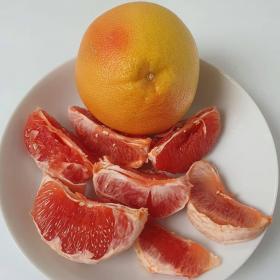The Grapefruit (Citrus Paradisi) was first noticed in Barbados in 1750; by 1880, it had become an important commercial crop in Florida. Grapefruit is a good source of flavonoids, water-soluble fibers, potassium, vitamin C, and folic acid.
Citrus Paradisi can be used externally as a facial cleanser, scalp treatment, and anti-fungal wash for the skin and nails. Grapefruit is a natural antiseptic for wounds when used externally.
Citrus Paradisi preparations are indicated in cases of obesity, sluggish liver, gall stones, catarrh, fevers, pneumonia, poor digestion, and poor complexion. They are also valuable as drug poison eliminators.
Various extracts from Citrus Paradisi exhibit non-irritating, antiseptic, and astringent qualities, making them useful in skin creams, lotions, toners, moisturizers, and other skincare products.Common name(s)
Citrus Paradisi
Citrus Decumana
Shaddock
Plant ingredients
The fresh scent immediately provides an intense feeling of happiness. Fresh, lively, fruity scent. Its androgynous fragrance delights women and men alike. Grapefruit oil is valued for promoting circulation, for its purifying effect, and for metabolic stimulation.
The grapefruit (Citrus Paradisi) tree is often over 10m high with glossy leaves and large yellow fruits, believed to have derived from the shaddock
Grapefruit (Citrus Paradisi) seeds contain organic salicylic acid, which dissolves inorganic calcium in
